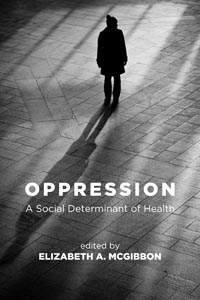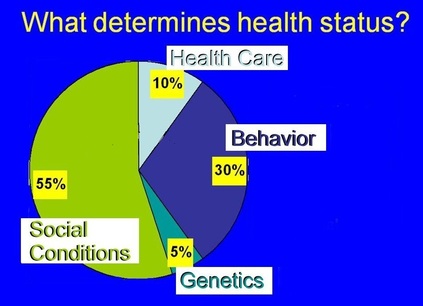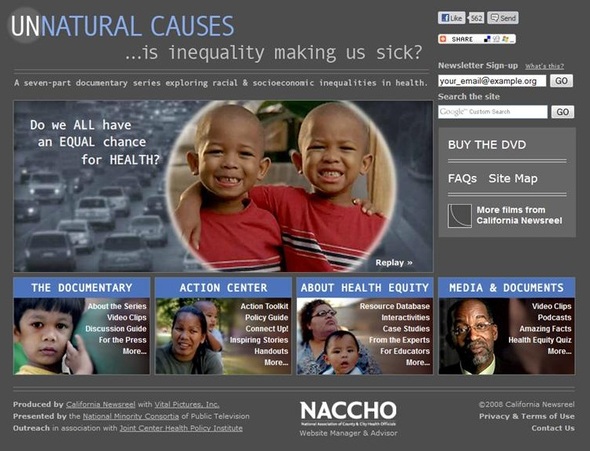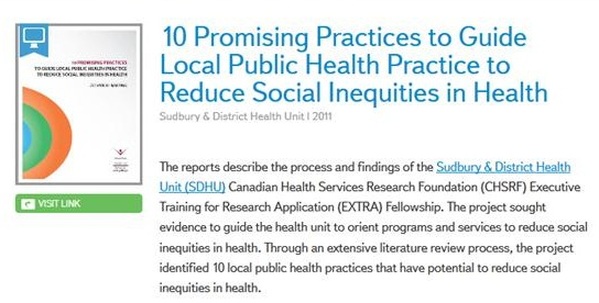| sdoh-4.pdf | |
| File Size: | 268 kb |
| File Type: | |
Are you surprised?
Health care gets a lot of attention in mainstream media. But research shows that healthcare is only a small part of what REALLY affects our health. The choices we make, our behavior, has a large impact on our health. BUT, the places where we live, work, and play - our social conditions- affect the choices we make. The healthy choice should be the easy choice. For many communities, the healthy choice is not the easy choice.
Have you seen the fantastic video series called Unnatural Causes?
www.unnaturalcauses.org
Have you seen the fantastic video series called Unnatural Causes?
www.unnaturalcauses.org
Suggested reading by Enrique Cardiel...

Edited by Elizabeth McGibbon
Oppression and health are intricately connected. A recent emphasis on the social determinants of health has focused attention on the “causes of the causes” of ill health, including systemic forces such as capitalism, globalization, imperialism, medicalization, neo-colonialism and neoliberalism. If we are to change the oppressive practices that cause ill health our analysis must consistently and explicitly integrate these systemic forces and thus reframe growing health inequities within the scope of moral responsibility and social justice. The internationally recognized authors of this book do just this. An important addition to the relatively new field of critical health studies, Oppression is an integration of critical social scientific perspectives and health systems/health sciences knowledge. The goal of the book is to support, enhance and provoke action to interrogate the progress of oppression. It can be done, and it is being done.
Oppression and health are intricately connected. A recent emphasis on the social determinants of health has focused attention on the “causes of the causes” of ill health, including systemic forces such as capitalism, globalization, imperialism, medicalization, neo-colonialism and neoliberalism. If we are to change the oppressive practices that cause ill health our analysis must consistently and explicitly integrate these systemic forces and thus reframe growing health inequities within the scope of moral responsibility and social justice. The internationally recognized authors of this book do just this. An important addition to the relatively new field of critical health studies, Oppression is an integration of critical social scientific perspectives and health systems/health sciences knowledge. The goal of the book is to support, enhance and provoke action to interrogate the progress of oppression. It can be done, and it is being done.


